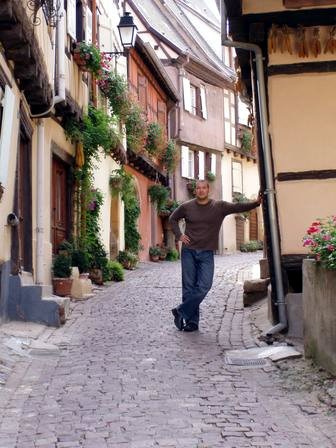I was in a tasting with about 40 winemakers last week, discussing production issues. Someone brought up the question of how to manage our unfiltered wines. One winemaker said "With Velcorin!" and another said, "Filter it, and then if anyone asks if it is filtered, it is only because they think that unfiltered is better, so then tell them that it is unfiltered, and they will be satisfied."
If your main motivation for not filtering is because you perceive that the trade or critics will like it better, then recognize that you are starting to let marketing direct your winemaking. These guys are capricious, and not filtering is a less than definite way to encourage their approval.
If you choose not to filter based on philosophical predispositions, be aware that it will likely require more intervention in the wine earlier on to minimize spoilage. pH must be low, SO2 must be maintained at levels high enough to discourage spoilage. Scorpion testing and plating should occur prior to bottling to know what microbes, and what levels are present. Turbidity should be below acceptable levels, or else further fining should take place to lower suspended solids.
Kermit Lynch is an importer who does a good job on so many things, including support for small producers, importation in cooled containers, and generally selection of high quality wines. He absolutely insists on no filtration in his wines, in many cases having a special non-filtered bottling made just for his own importation. However, I have found too many instances, especially with southern French and Italian wines that have been too Bretty to drink, have pressure and seepage through the cork, or which have rafts of spoilage organisms in the glass upon pouring it. That is unacceptable to me, and I only purchase white wines from him now, unless I have a chance to try the wines first. (I have never had a problem in a Chinon or Burgundy, I guess that these wines, from cooler climates have sufficient acidity to prevent these problems.)
Perhaps filtration got a bad name in the past, when the technology was haphazard, and the wines were exposed to oxidation or other problems during the filtration. I tend to filter pretty much everything via a crossflow filter, and we are able to keep O2 pickup below 0.4ppm, which is similar to a simple racking. I can leave wines on their lees up until bottling, which further protects them; I think that this filtration is a tool that helps me to be LESS manipulative with the wines than if I didn't filter. We have done trials with crossflow vs. pad vs. DE vs. Velcorin vs. non-filtered, and the crossflow is much gentler on the ester chemistry of the wines. In some big reds, and in Pinot Noir, there may be some effect of the colloidial structure being different after filtration, due to proteins that are pretty big getting disturbed, and possibly removed. I don't know how to quantify this, but we have found that the wines come back together very well within a month or two. Velcorin seems to be pretty impactful on the wines, although it holds up well in big Cabernet Sauvignons and Syrahs okay. We haven't used it much more than for just trials.
I do know that we had a problem with a Syrah which was filtered to 1.5 microns going Bretty in the bottle, despite clean microbiology report at bottling (plating method.) This was before I was responsible, but we had to live with the consequences of a really slow selling vintage, and worry about reputation of the winery. We have gone to plating AND scorpions (more reliable, less false negatives,) and we stir barrels / tanks before sampling, as Brett can flocculate to the bottom of a container. We also test for 4EP / 4EG, but there can be Brett present without 4EP / 4EG, (but if it IS present, it means that Brett has at some point been active in the wine.)
I like unfiltered wine philosophically, but pragmatism wins out when our winery is trying to develop a strong reputation for quality and reliability. Just too much at stake, and there is no convincing argument to make me accept the risk.
(Maybe it is like the admiration for these guys who climb rock faces without harness or lines; I admire the elegance and skill, but heck if I'll try it!)
Tuesday, March 06, 2007
Subscribe to:
Posts (Atom)
